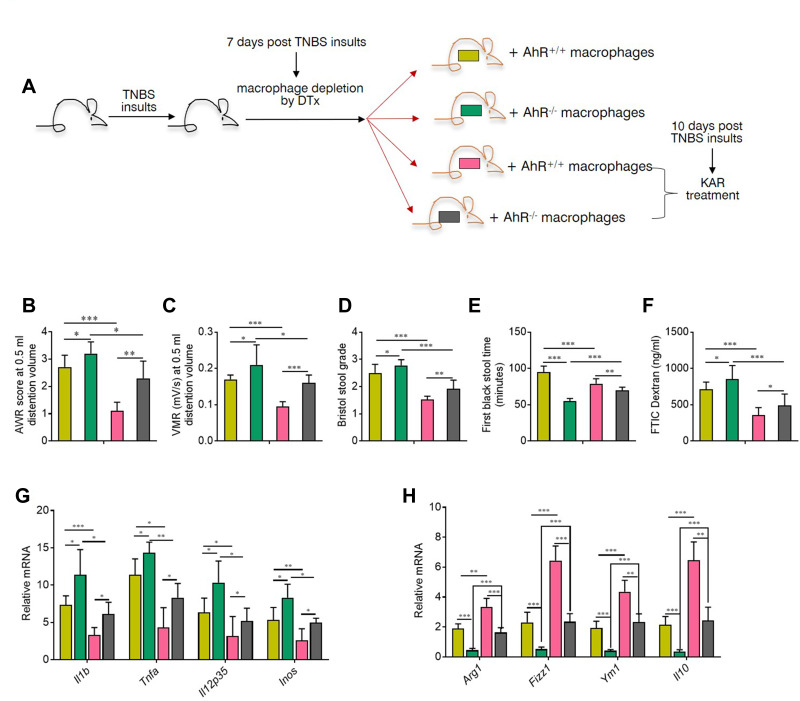Figure 5.
AhR deficiency in macrophages impaired the effect of KAR on IBS mice. (A) CD11b-DTR transgenic mice were received with TNBS to induce colonic inflammation as in Figure 1, and DTx (2 mg/g) was injected intraperitoneally into them to deplete macrophages 7 days post TNBS exposure. Peritoneal macrophages from AhR+/+ or AhR−/- mice were purified and were transferred intravenously into DTx-treated mice. 2×106 macrophages for each DTx-treated mouse. After 3 days of reconstitution, KAR (100 mg/kg/day) was administrated intraperitoneally and these chimeras were divided into four groups (n = 8): chimeras with AhR+/+ macrophages (AhR+/+ chimeras) without KAR, AhR+/+ chimeras with KAR treatment, chimeras with AhR−/- macrophages (AhR−/- chimeras) without KAR, and AhR−/- chimeras with KAR treatment. The (B) AWR test and (C) VMR in response to CRD at 0.5 mL distending volume. (D) Bristol stool grade. (E) The first black stool time. (F) Intestinal permeability was minored by serum FITC-dextran concentrations. The transcript expression levels of colonic (D) inflammatory mediators (IL-1β, TNF-α, Il-12p35, and iNOS) and anti-inflammatory mediators (Arg1, Fizz1, Ym1, and IL-10) were measured by qRT-PCR. *P < 0.05, **P < 0.01, ***P < 0.001, one-way analysis of variance (ANOVA). Representative results from one of three independent experiments were shown.

